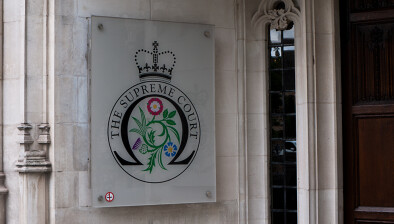Dr Deirdre McGowan: Family and care referendums – a family law perspective

Dr Deirdre McGowan
Dr Deirdre McGowan offers a family law perspective on the coming family and care referendums.
We have become accustomed to referendums that result in practical positive change. The equal-marriage referendum allowed previously excluded couples to get married. Similarly, repealing the eighth amendment facilitated new medical treatments. Both of these referendums were accompanied by implementing legislation; we were clear what exactly the impact would be before the vote.
The 39th and 40th referendums are different. Whether or not they are passed, nothing concrete will change. We are being asked to consider largely symbolic shifts in how the Constitution describes families and family care.
The family amendment
The 39th Amendment proposes to amend Article 41.1.1 of the Constitution by adding the text in bold:
“The State recognises the Family, whether founded on marriage or on other durable relationships, as the natural primary and fundamental unit group of Society, and as a moral institution possessing inalienable and imprescriptible rights antecedent and superior to all positive law.”
Article 41.1.2 will remain the same. The text of this article is omitted from much of the literature around the referendums but is important for understanding the position of the constitutional Family:
“The State, therefore, guarantees to protect the Family in its constitution and authority, as the necessary basis of social order and as indispensable to the welfare of the Nation and the State.”
Article 41.3.1 will also change by deleting some text:
“The State pledges itself to guard with special care the institution of Marriage
, on which the Family is founded,and to protect it from attack.”
Currently, the Family referred to by Article 41.1.1 is the family based on marriage. Therefore, the family that the State guarantees to protect in Article 41.1.2 is the family based on marriage only. The type of family protected is clear — exactly what that protection entails is less certain.
In the recent Supreme Court decision in Gorry, the Chief Justice indicated that, broadly speaking, the article seeks to delineate a scope of decision-making which belongs to the family and ought not to be usurped the State. This might include things like how many children a couple have, where they will live, how they own property, whether one or both of them will work outside the home. Crucially, there are no hard and fast constitutional rules on this.
The proposed change will mean that the family protected by the Constitution is no longer limited to the family based on marriage. Symbolically this is a powerful statement. It tells us that the State values all families founded on ‘durable relationships’.
If we think about the constitutional protection as creating a zone of familial decision-making, the question of what constitutes a ‘durable relationship’ becomes more closely aligned with what we might, in ordinary terms, call family. It undoubtedly includes parents and children, committed cohabitees, kinship carers. Other relationships may be family depending on what they do, how they support and care for each other.
Importantly however, designating a particular group of people as ‘Family’ for Constitutional purposes will not, of itself, confer any legal rights.
Legal rights come about through legislation. Immigration law, succession law, divorce law, tax and social welfare law — all confer various rights based on familial relationships. Some are based on marriage, some on cohabitation and others on parent-child relationships.
The legislature may choose to define ‘durable relationships’ for some or all of these purposes, or to extend rights to a broader range of families than is currently the case. Nonetheless, the proposed amendment, if passed, will not mandate any such change, nor will it change any existing legal rights.
Constitutional challenges to existing rules from people claiming their ‘durable relationship’ gives them the same rights as married people can already be dealt with — as in the recent O’Meara case which dealt with eligibility to the widower’s pension — by making a case that excluding them amounts to invidious discrimination contrary to the equal protection provision of the Constitution.
The care amendment
The 40th Amendment proposes to delete the current Articles 41.2.1 and 41.2.2:
“In Particular, the State recognises that by her life within the home, woman gives to the State a support without which the common good cannot be achieved.
“The State shall, therefore, endeavour to ensure that mothers shall not be obliged by economic necessity to engage in labour to the neglect of their duties in the home.”
Replacing them with a new Article 42B:
“The State recognises that the provision of care, by members of a family to one another by reason of the bonds that exist among them, gives to Society a support without which the common good cannot be achieved, and shall strive to support such provision.”
As many commentators have pointed out, the existing article has been of little or no benefit to women working in the home and the State has not taken any steps to ensure that mothers will not be forced to work outside the home.
The provision does get some traction when the courts are making provision for dependent spouses in judicial separation and divorce cases. The court is required to ensure ‘proper provision’ for the spouses and in doing so must consider the contributions which each spouse has made to the welfare of the family by either income-earning or ‘looking after the home or caring for the family’. Article 41.2 has allowed the courts to say that income-earning and care work, whether carried out by men or women, have equal value in this context.
The proposed amendment re-frames the sentiment of the original so that it refers to members of a family more generally and to the care they provide to each other. It is an acknowledgment that this care work is an essential social support. As with the previous article, the obligation placed on the State is weak, but it will continue to support the equal valuing of care and income earning in the context of divorce.
The new text is also a symbolic acknowledgement that we lead relational lives in which we are cared for and care for others within a broad range of familial settings. Stating this clearly in the Constitution signals that people are valued for who they are and not only as economic producers and consumers.
In deciding how to vote on 8th March, we need to compare the existing text with the proposals to decide which most appropriately describes how we think about family life and relationships. Whichever way the vote goes, no one’s statutory or family-based rights will change as a result only of the outcome of these referendums.
- Dr Deirdre McGowan is a qualified solicitor as well as a senior lecturer and head of law at Technological University Dublin. She is the co-editor, with Dr Maebh Harding, of Family Law in Context (2023, Clarus Press).









